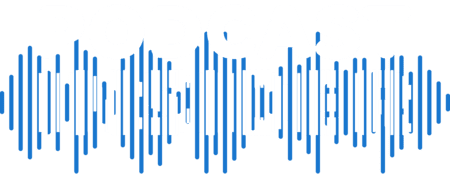Podcast: Play in new window | Download (Duration: 18:09 — 14.5MB) | Embed
Ever wanted to learn how to switch podcast hosting providers or website hosts?
 Thinking about moving your podcast website from WordPress to another platform? Before you make the switch, there are some crucial things you need to know — especially about your RSS feed. In this episode, we’re tackling one of the most common (and frustrating) issues podcasters face when migrating their site: broken podcast feeds. We’ll walk you through how to protect your feed, handle media files, preserve your SEO, and make a smooth transition without losing your audience in the process.
Thinking about moving your podcast website from WordPress to another platform? Before you make the switch, there are some crucial things you need to know — especially about your RSS feed. In this episode, we’re tackling one of the most common (and frustrating) issues podcasters face when migrating their site: broken podcast feeds. We’ll walk you through how to protect your feed, handle media files, preserve your SEO, and make a smooth transition without losing your audience in the process.
Today’s Hosts: Mike Dell and Dave Clements
We often hear from podcasters who say something like, “My web designer moved my website from WordPress to [insert platform], and now my feed doesn’t work!” Hopefully, in this episode, we will explain what you need to think about and plan for when moving your website, so you don’t run into the same problem.
Dos and Don’ts of Platform Podcast Migration
1. Understand how your RSS feed works now
- When you use PowerPress, your podcast RSS feed is usually something like yoursite.com/feed/podcast/.
- Podcast apps (Apple, Spotify, etc.) and your listeners get new episodes from that feed, not directly from your website pages.
- If you shut down your WordPress site without properly redirecting that feed, your podcast will stop updating for everyone subscribed.
2. Plan how to preserve your feed
There are two common approaches:
- Keep your WordPress site running only to keep the feed active, while your new website lives on another platform.
- Move your feed to a feed hosted by Blubrry. We can turn on a Blubrry feed that you can redirect to. If you are not hosting on Blubrry, you must recreate that feed somewhere else. (Blubrry Hosting).
- VERY IMPORTANT, you must set up a 301 redirect from the old feed address to the new one so all podcast apps and directories get the new location automatically.
3. Handle your media files
If you’ve been hosting audio files on your WordPress server, you’ll need to:
- Move them to a podcast hosting service or another reliable server.
- It’s best practice to use a dedicated podcast host so your new website platform isn’t burdened with serving large audio files.
Of course, we recommend Blubrry. Contact us for help migrating your show.
4. Maintain SEO and backlinks (somewhat important)
- Your WordPress site probably has episode pages that show up in search results or are linked around the web.
- If you move to a new web platform that uses a different URL structure, you’ll need to set up page-level redirects so listeners don’t get broken links.
- Also, check your embedded players — you may need to update them to work with your new site.
5. Update podcast directories
- If your feed URL changes, make sure to update it in Apple Podcasts, Spotify, and other directories.
- Many directories will follow your 301 redirect automatically, but some require you to log in and update the feed address manually.
6. Have a transition plan
- Test your new feed thoroughly before switching.
- If possible, announce the move to your listeners.
- Keep the old feed or site running for at least 30–60 days with redirects in place to catch any stragglers and to give time for all apps to update.
Thanks for listening to Podcast Insider, you can subscribe to new episodes out every Monday.
The best place for support with any Blubrry product or service is our ticket system. Tickets give the whole team access vs. direct emails or calls. General podcasting discussions and more can be shared on the Blubrry Podcasting Facebook group.
Fill out our listener survey at surveys.blubrry.com/podcastinsider
Hosting customers can schedule a one-on-one call with Todd or a tech checkup with Mike at todd@blubrry.com and mike@blubrry.com
Stay tuned for more episodes and visit our website for the latest updates and resources.





